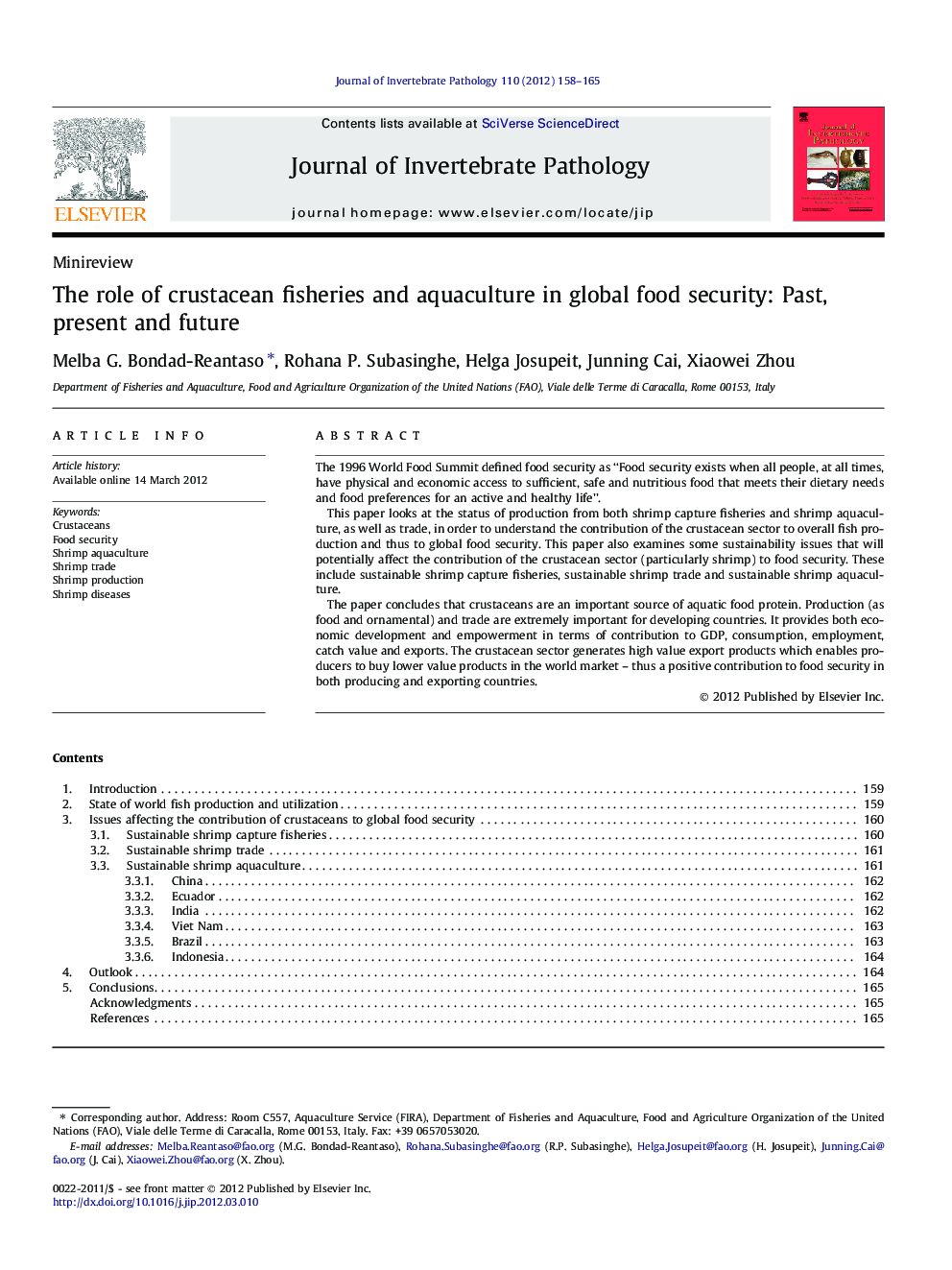| Article ID | Journal | Published Year | Pages | File Type |
|---|---|---|---|---|
| 4557898 | Journal of Invertebrate Pathology | 2012 | 8 Pages |
The 1996 World Food Summit defined food security as “Food security exists when all people, at all times, have physical and economic access to sufficient, safe and nutritious food that meets their dietary needs and food preferences for an active and healthy life”.This paper looks at the status of production from both shrimp capture fisheries and shrimp aquaculture, as well as trade, in order to understand the contribution of the crustacean sector to overall fish production and thus to global food security. This paper also examines some sustainability issues that will potentially affect the contribution of the crustacean sector (particularly shrimp) to food security. These include sustainable shrimp capture fisheries, sustainable shrimp trade and sustainable shrimp aquaculture.The paper concludes that crustaceans are an important source of aquatic food protein. Production (as food and ornamental) and trade are extremely important for developing countries. It provides both economic development and empowerment in terms of contribution to GDP, consumption, employment, catch value and exports. The crustacean sector generates high value export products which enables producers to buy lower value products in the world market – thus a positive contribution to food security in both producing and exporting countries.
Graphical abstractFigure optionsDownload full-size imageDownload as PowerPoint slideHighlights► Crustaceans are valuable sources of aquatic food protein. ► Production and trade are significant economic activities for developing countries. ► Important sustainability issues include shrimp fisheries, trade and aquaculture. ► Crustaceans positively contribute to food security in both producing and exporting countries.
